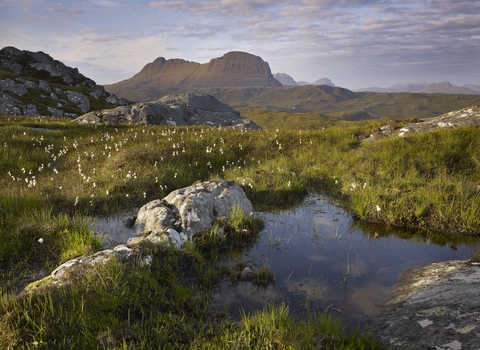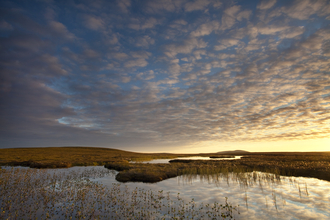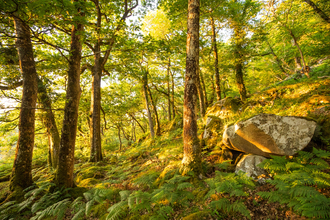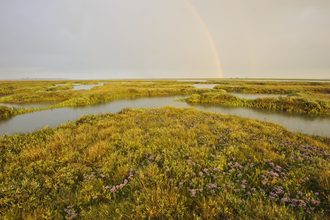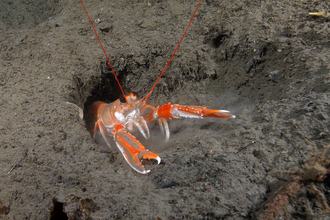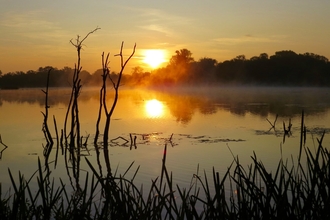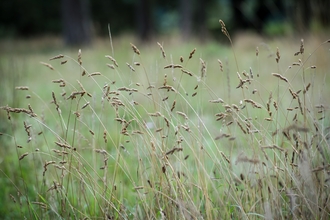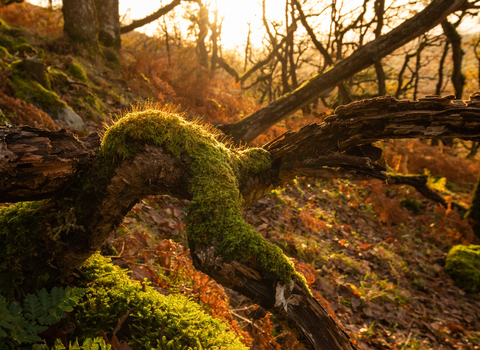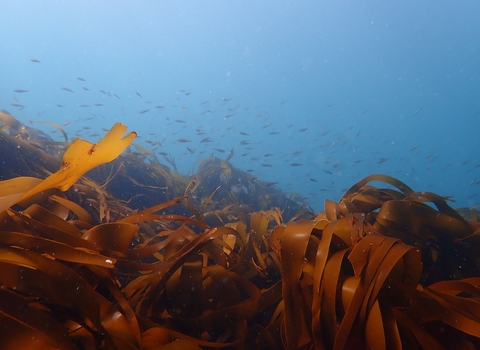We are in the middle of climate and nature emergencies and the two are inextricably linked.
Climate change is driving the decline of nature. Then when we lose wildlife and wild places, we lose the ability to reduce carbon emissions and adapt to change. One cannot be solved without the other.
We need to reduce greenhouse gas emissions and adapt to the effects of climate change. Nature plays a key role in both.
We need healthy natural habitats to combat climate change
When healthy, our natural habitats can help combat climate change as well as helping us to adapt to the changing climate. They:
- lock away carbon
- reduce the risk of flooding
- provide shading and cooling from hot temperatures
- maintain healthy soils, clean water and the pollinators needed for our crops
- improve our health and wellbeing
Restoring nature can soak up carbon emissions
Peatlands, woodlands, saltmarsh, ocean sediments and seagrass are just a few of the incredible natural carbon stores that we need to start better protecting. These habitats act as ‘carbon sinks’ when in good condition.
Nature itself is at risk from climate change but if we help it to recover, its potential to store carbon means it can help us turn the tide on the climate catastrophe. This is known as nature-based solutions to climate change.
Globally, natural carbon sinks have removed 31% of human-made carbon emissions1 in recent times – and our soils contain more carbon than is stored in plants and the atmosphere combined!
Our oceans have absorbed 23% of human-made carbon emissions1 in recent years. Carbon is part of the whole system, stored in the tissues of the plants and animals, and in the mud and sediment.
1 Source: IPCC
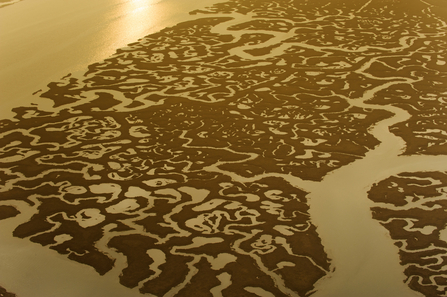
Saltmarsh at Abbotts Hall, Essex Wildlife Trust. Saltmarsh is a natural solution to climate change © Terry Whittaker/2020VISION
How The Wildlife Trusts are combatting the climate crisis
For decades, Wildlife Trusts have been working on the ground to restore nature.
We protect and restore important habitats, including peatland, woodland and saltmarsh, which lock away carbon and limit the effects of climate change. We invest in natural flood management, and in urban greenspace, supporting communities.
Read The Wildlife Trusts' Climate Statement
In response to the climate crisis, The Wildlife Trusts are:
- Restoring vital habitats that lock away carbon and help boost resilience to climate change. Learn about our rainforest restoration project
- Calling for more investment in nature-based solutions to climate change and nature’s recovery, to tackle climate change
- Ensuring nature-based solutions to climate change are at the heart of local and national decision-making, such as planning and development
- Working to ensure everyone can connect with and enjoy nature, for the benefit of our health and well-being
- Raising awareness of the climate crisis and actions that can be taken by individuals
- Working towards being net zero and addressing the risks from climate change to nature on our own estate
We produce a wealth of reports on the nature and climate crisis, and the action we are taking. These explore the climate crisis, adaptation to climate change and the role of nature in mitigating climate change.
How to reduce your carbon footprint
We have lots of advice on how you can take action to reduce your greenhouse gas emissions and adapt to climate change in a nature-positive way. Check out our resources below.
Things you can do about climate change
Latest climate news and blogs

What is COP30?
Eleanor Johnston, Climate Change Manager at The Wildlife Trusts, explains what COP30 is, and what we can expect...
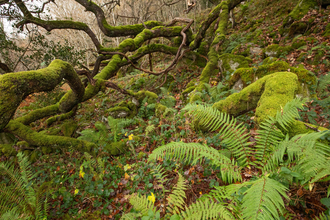
Climate overshoot: How can nature help?
Rob Stoneman, Director of Landscape Recovery, reports on insights from IUCN World Conservation Congress. Let’s dive into climate…
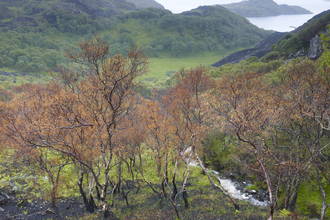
New report shows UK nature bearing brunt of chaotic climate
The Wildlife Trusts warn: Government is shockingly underprepared
Nature-based solutions to climate change
Learn more about some of our habitats, and how by restoring them we can help to combat the climate crisis.

